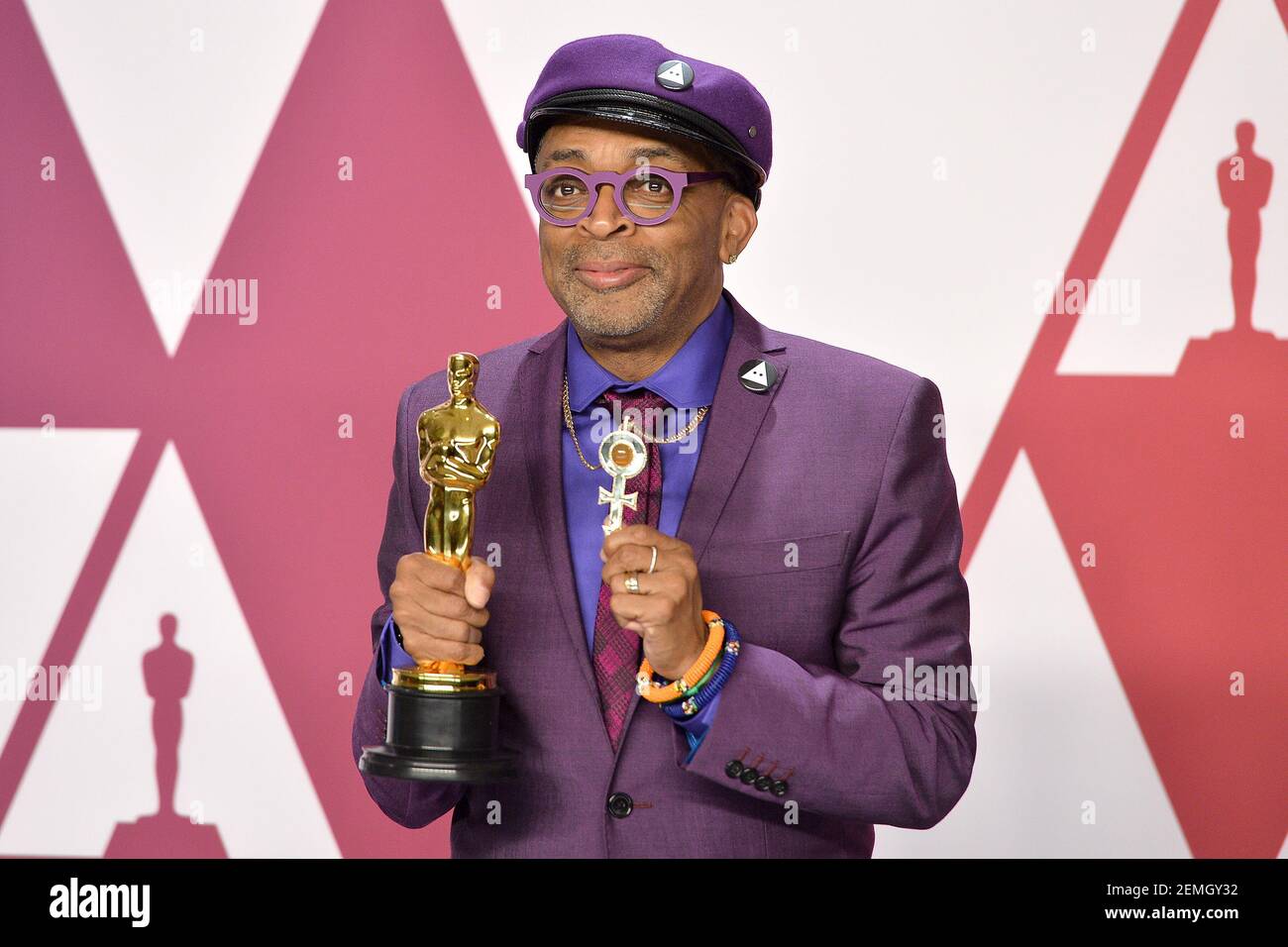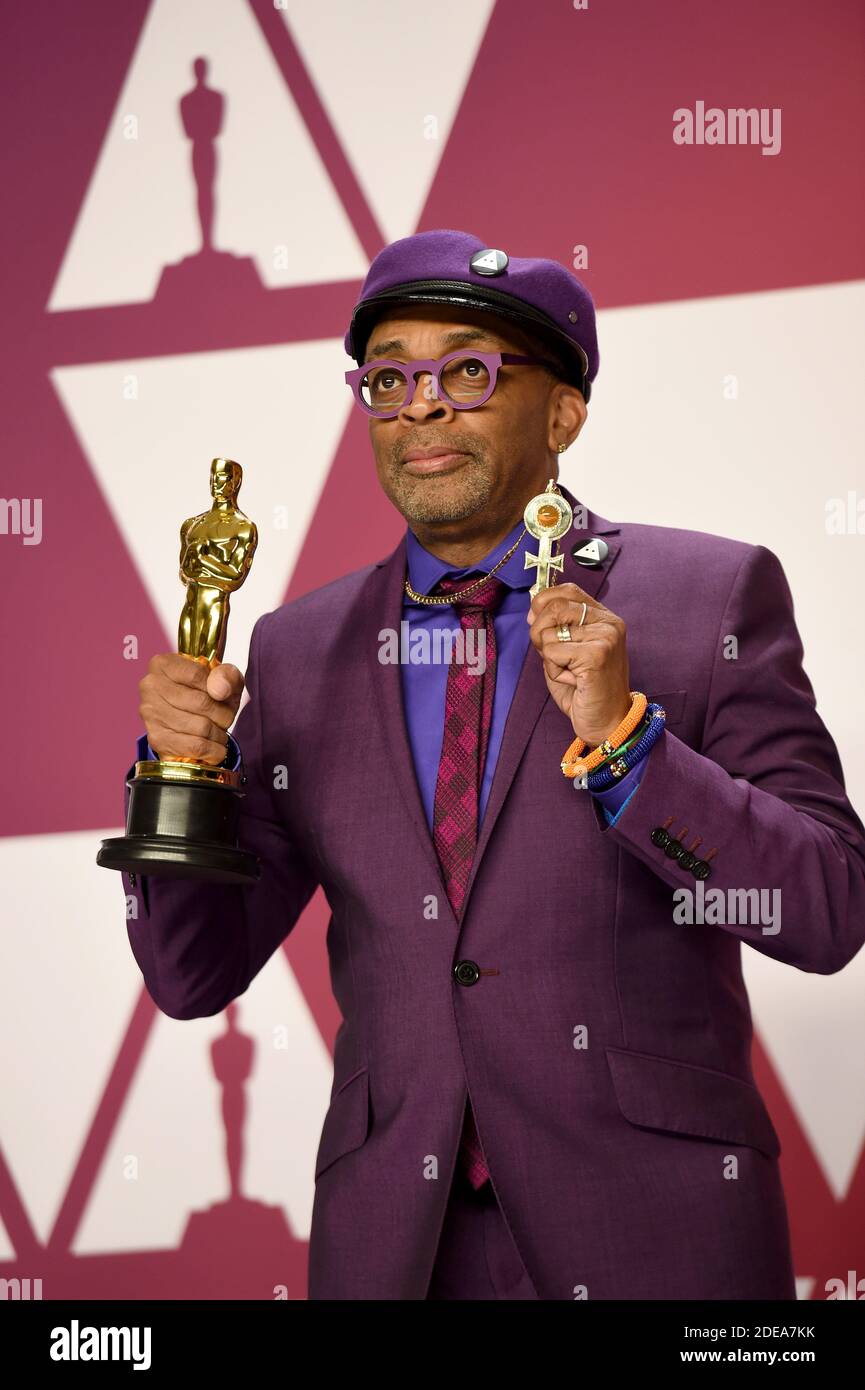Oscars 2019: Spike Lee & Blackkklansman's Big Night & More!
Has the Academy finally caught up with the times? The release of new standards for Best Picture eligibility signals a significant shift, potentially reshaping the landscape of cinematic recognition.
The Academy of Motion Picture Arts and Sciences, after what many perceived as a considerable delay, unveiled a new set of standards. These criteria, which all films nominated for the coveted Best Picture award must meet, are designed to promote diversity and inclusion. While the specific details of these standards were not provided in the given text, the mere announcement underscores a growing awareness within the Academy of the need for greater representation and equity in the film industry. This is a crucial step towards ensuring that the films celebrated by the Academy reflect the world in its rich complexity, and are not restricted to a narrow band of perspectives.
| Category | Details |
|---|---|
| Full Name | Shelton Jackson Lee |
| Born | March 20, 1957 (age 67 years), Atlanta, Georgia, U.S. |
| Education | Morehouse College, New York University Tisch School of the Arts |
| Known For | Film Director, Producer, Screenwriter, Actor |
| Notable Works | Do the Right Thing, Malcolm X, BlacKkKlansman, Da 5 Bloods |
| Awards and Accolades |
|
| Spouse(s) | Tonya Lewis Lee (m. 1993) |
| Children | Satchel Lee, Jackson Lee |
| Website for Reference | IMDB - Spike Lee |
On February 24, 2019, at the 91st Annual Academy Awards, held at the Dolby Theatre within the Hollywood & Highland Center in Hollywood, California, a pivotal moment unfolded. Spike Lee, the visionary filmmaker, finally received the recognition that many believed was long overdue. He took home the Oscar for Best Adapted Screenplay for his groundbreaking film, 'BlacKkKlansman'. This victory was more than just an award; it was a testament to Lee's enduring influence, his unwavering commitment to social justice, and his masterful storytelling.
The atmosphere at the Governors Ball, following the ceremony, was filled with excitement and celebration. Lee, a figure synonymous with cinematic innovation and social commentary, was the center of attention. The win was significant for a filmmaker who had long been a prominent voice in American cinema. His films, often provocative and always insightful, have consistently challenged audiences to confront uncomfortable truths about race, class, and power in America. The Academy's recognition of 'BlacKkKlansman' validated his artistic vision and affirmed his place among the cinematic greats.
The evening was a culmination of decades of work and a powerful statement about the evolution of the Academy itself. The Academy Awards, like the film industry, have been evolving over time, and the inclusion of Lee among the winners reflected a shift towards greater diversity and a broader appreciation for the voices of underrepresented communities. As Lee walked onto the stage, he lept into presenter Samuel L. Jacksons arms for a hug, showcasing the camaraderie and shared joy amongst the creative community.
The awards ceremony also included a moment shared by Jordan Peele, Winston Duke, and Lupita Nyong'o, captured during the live ABC telecast, which offered a snapshot of the diverse talent celebrated that night. The vibrant presence of these actors, alongside the recognition of Lee, painted a picture of a changing industry, one that was beginning to reflect the multiplicity of experiences and perspectives that make up the world.
The Dolby Theatre, the venue for the 91st annual event, played host to a night filled with both triumph and reflection. This event served as a vibrant symbol of the industry's progress, demonstrating the Academy's dedication to honoring an expansive range of cinematic narratives. Beyond the awards themselves, the Governors Ball provided a space for the creative community to come together, celebrate achievements, and forge new connections.
Among the winners, Rami Malek, who won Best Actor for his portrayal in 'Bohemian Rhapsody', was also celebrated at the Governors Ball. The film, a celebration of the iconic band Queen, earned critical acclaim. The evening was a blend of celebrating both the established veterans, like Lee, and the emerging talents, creating a night of diverse and memorable wins.
For Spike Lee, the win was a dream come true. It was not just an Academy Award; it was a symbol of acknowledgement of his artistic contributions, the impact of his storytelling, and the significance of his voice in shaping the conversation about race and social justice in America. The award was a long time coming, and the joy on his face as he accepted the award was a testament to the passion, the dedication, and the artistry that defined his career.
The ceremony itself highlighted the collaborative nature of filmmaking. Lee shared the stage with Charlie Wachtel, David Rabinowitz, and Kevin Willmott, the co-writers of the screenplay. Their shared success was a validation of their collaborative work, showcasing the power of collective vision and the synergy of creative collaboration.
The success of 'BlacKkKlansman' at the Oscars underscored the film's impact. The movie, which was nominated for six awards, was a powerful statement against racism. The Best Adapted Screenplay award was particularly significant, acknowledging the brilliance of the film's adaptation, its incisive commentary, and its poignant storytelling. The film's recognition by the Academy signaled a shift in values within the industry and validated the importance of stories that challenge societal norms.
The 91st Academy Awards were a night of celebration, recognition, and reflection. The awards ceremony honored the accomplishments of some of the industry's most talented people. The event highlighted the importance of diversity, the power of storytelling, and the ability of film to inspire change and shape the world.
The legacy of the 91st Academy Awards will endure. The triumph of Spike Lee marked a watershed moment. His win, alongside the recognition of other outstanding achievements, showed the ongoing evolution of the film industry and its continued dedication to excellence.
The event, held on February 24, 2019, at the Dolby Theatre in Los Angeles, served as a landmark in the history of the Academy Awards. The night represented a turning point. It offered a glimpse of a future where cinematic achievements were judged not only on artistic merit but also on their ability to reflect the worlds diverse tapestry.
As the industry advances, the 91st Academy Awards will be remembered for its commitment to recognizing cinematic brilliance and its embrace of diverse voices and perspectives. It was a night when Spike Lee's long-deserved recognition came, forever changing the landscape of the industry, solidifying his legacy as one of the most important filmmakers of our time.


